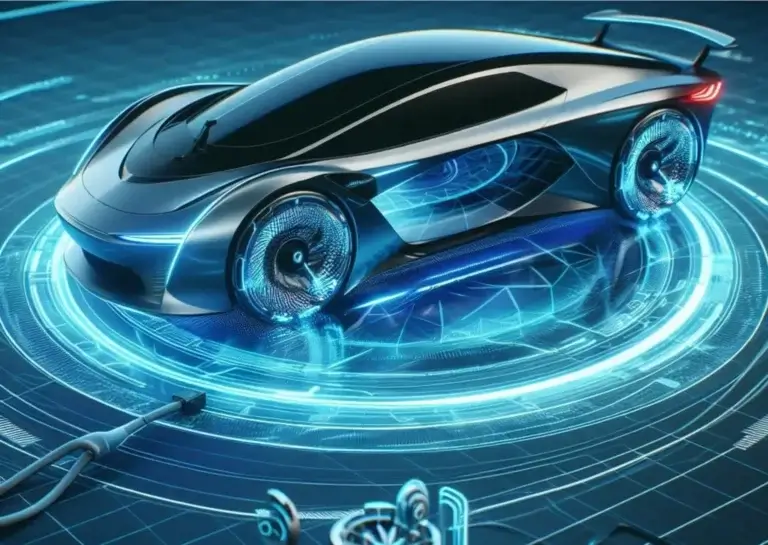Government incentives are among the key elements to greater battery electric vehicle adoption.
We recently published a list of UK incentives, covering schemes and grants for individuals and businesses looking to reduce the cost of charge point installation, alongside other road tax incentives for EV drivers.
Here, we feature a roundup of leading incentives currently on offer across the 27 EU Member States to help accelerate EV adoption and greater roll out of EV charging infrastructure.
Austria

EV incentives
- For private EV purchases, a grant of up to €5000 is available for fully electric vehicles, and €2500 for PHEVs and range extender EVs
- Commercial vehicles have equivalent grants:
- €4000 for fully electric vehicles
- €2000 for PHEVs and range extender EVs
- There are additional grants for other types of electric vehicles, from emopeds to large electric buses to incentivize electrification across the transport sector.
EV tax incentives
- Electric vehicle charging and the vehicles themselves are exempt from benefit-in-kind tax
- EVs are also exempt from:
- Standard consumption tax
- Motor-related insurance tax
EV Charging Incentives
- Private EV charger grants
- Home installation grants of up to €600 per charge point are available for individual homes or up to €1800 per charge point for shared buildings such as apartment blocks.
- Commercial EV charger grants
- For commercial installations there are two brackets:
- Publicly accessible and registered chargers:
- Up to €2500 for AC chargers, €15000 for DC charge points <100kW and €30000 for DC chargers with a power output >100kW
- For the purchase and installation of commercial charge stations that are not accessible to the public:
- Up to €900 for AC chargers
- €4000 for DC chargers with a power output below 50kW
- For 50-100kW, a grant of up to €10000 is available
- >100kW chargers, €20000 is available per charge point.
- There is an additional grant for the purchase of an electric vehicle and a charge point together between €1350-€30000 depending on the charge point you buy.
Belgium

Commercial EV incentives
- Financial assistance of up to €5000 per commercial vehicle or €3000 for other types of vehicles are available for businesses investing in electric or hybrid vehicles. There is a cap of €80,000 per company.
EV tax incentives
- Personal income tax reduction of 15% on electric vehicles which can transport at least two people and require a driving license and have been purchased for personal use. (Capped at €3140 for two/three wheeled vehicles and €5150 for four-wheeled vehicles)
- Flanders: Electric vehicles are completely exempt from annual road tax and registration tax.
- Brussels and Wallonia: completely electric vehicles pay a base tariff on both the entry into service tax.
Bulgaria

EV Incentives
- There are subsidies available to assist with the purchase of electric vehicles for use in public services, for example, waste collection and disposal.
- EV owners do not pay for parking in some Bulgarian cities (Sofia, Plovdiv and Burgas).
EV tax incentives
- Fully electric vehicles and motorcycles are exempt from ownership tax
Croatia

EV tax incentives
- Vehicle tax is partially dependent on CO2, so EV owners pay a base rate.
EV Incentives
- The Fund for Environmental Protection and Energy Efficiency offers grants to support the acquisition of electric vehicles, however, when they committed a further €5.8 million last April, they reached the limit in 2 minutes. Therefore, currently this is unavailable.
Cyprus

EV tax incentives
- Annual vehicle tax is based on CO2 emissions so EV owners pay a base rate.
- Vehicles emitting less than 120g/km are exempt from registration tax
Czech Republic

EV tax incentives
- Electric vehicles and full cell EVs are exempt from registration tax
- Electric vehicles, including hybrids, are exempt from annual road tax
- Vehicles with emissions below 50g/km are exempt from motorway tolls and other vignette rates
Denmark

EV tax incentives
- Denmark is currently phasing full-registration tax back in for BEVs – in 2021 BEVs are due to pay 65% of the full rate, in 2022 it is due to be 90%. However, this return to the petrol and diesel regime has already been subject to multiple delays.
- The taxable value of the car has been reduced by DKK 1700 pr. kWh until the end of 2022 for PHEVs and BEVs
EV Charging Incentives
- Denmark offers tax reduction of the electricity used to power EV charging stations
- Favourable tariffs for electric buses have been extended to 2024
Estonia

EV Incentives
- A state subsidy is available up-to €5000 for a BEV or electric van < €50000, however this is done in fixed phases, and therefore is only available periodically.
- EVs are exempt from city parking fees and can use bus lanes
Finland

EV Incentives
- A grant of €2000 for new BEVs is available until Nov 31 2021, but only for cars being purchased for a household, with a maximum value of €50000.
EV tax incentives
- Electric vehicles pay a lower tax rate than diesel vehicles
- Registration tax is based on CO2 emissions so EV owners pay a base rate
EV infrastructure incentives
- A 30% subsidy is available for the building of EV charging stations > 11 kW
- A 35% subsidy is available for the building of EV charging stations > 22kW
France

EV incentives
- Ecological bonus: this is financial aid to assist with the purchase or renting of an electric or plug-in car or van. Currently the maximum that can be claimed is €7000 for individuals purchasing an EV < €45000. After June 2021 (until Dec 2021 earliest) this will reduce to a maximum of €6000 for the same. There are equivalent ecological bonus schemes covering electric bikes, tricycles and quads.
- Conversion bonus: in addition to the ecological bonus, extra financial assistance can be claimed, if at the same time as purchasing a new electric vehicle or plug-in hybrid, you scrap an old diesel or gasoline vehicle.
This aid is capped at a maximum of €5000 depending on which conditions are met. The conditions are formulated in a very similar way to the ecological bonus. This scheme is not changing in June 2021, however as the ecological bonus is decreasing, the maximum amount of aid will decrease to €11000 from €12000
- Electric retrofit bonus: a maximum of €5000 is available to assist with the replacing of a heat engine with an electric engine, thereby converting a polluting vehicle into a battery powered one.
EV tax incentives
- The fiscal power tax formula for electric vehicles is significantly more favorable than for polluting cars.
- There is an emissions related tax that begins for vehicles emitting more than 133g/km of CO2. As electrified vehicles are generally under this threshold, they are exempt.
- Clean vehicles (running exclusive on electricity or hydrogen) are completely exempt from registration tax.
There are a range of extra incentives for the purchase of EVs available from region to region, including additional grants of up to €6000.
EV charging incentives
- ADVENIR program: ADVENIR covers the costs of supply and installation of charging points up to 40% for companies and public entities and 50% for residential collectives. This includes:
- Subsidies for municipalities that install charging infrastructure at the request of users of electric vehicles within a radius of 500 metres of their place of residence or work, up to a maximum amount of €2,160 per charging point.
- Up to 50% of the costs of installing charging points at condominiums (apartment blocks) with the aim of having chargers installed at 3,000 condominiums by 2022.
Germany

EV incentives
- Umweltbonus: the purchase of EVs and the decommissioning of diesel and gasoline vehicles. Purchase grants valid until December 31st 2021 for electrical vehicles or plug-in hybrids with an electric range of at least 40km (this range will increase at the end of 2021):
- Currently €9,000 for fully electric vehicles with a list price under €40,000
- €7,500 for a fully electric vehicle with a list price between €40,000-65,000
- €6750 for plug-in hybrids, or €5,625 priced over €40,000.
- Used fully electric vehicles can be subsidised with a maximum of €5000, or an equivalent subsidy of €3750 for hybrid vehicles. The car must not have received the Umweltbonus before.
- AVAS bonus: Buyers purchasing an EV with an Acoustic Vehicle Alert System can claim an additional €100 on top of the Umweltbonus.
- Locally, BEVs receive free parking, reserved parking spaces and bus lane use.
EV tax incentives
- Fully electric vehicles registered in-between 2016 and 2030 have a 10-excemption on motor vehicle tax
- Hybrid plug-in vehicle pay, the tax but a lower rate in accordance with their CO2 vehicle
- Private use company vehicles with emissions lower that 50 g/km have are taxed at a 0.25% rate rather than 1%. The vehicle must have a list price below €60000. Vehicles above €60000 are taxed at a 0.5% rate.
- Individuals are not required to declare charging as a benefit if provided by their company.
- Businesses offering free charging to employees will not be taxed for this until at least 2030.
EV Charging Incentives
- A fixed-subsidy of €900 is available for the purchase and installation of a charge point for residential buildings, including apartment blocks and homes.
- Scaled subsidies are available in phases for the installation of publicly accessible charge points. In the 6th call between €3000-€30000 was available depending on the power of the charger. However, no further phases have announced to-date, although the budget indicates that there will be more in the coming years.
Greece

EV incentives
- Up to €6000 can be claimed to support the purchase of an EV: this is to subsidize 20% of the total value of a vehicle costing €30000. For vehicles costing €30000-€50000, this aid can subsidize up to 15% of the value of an electric vehicle. This also only applies to new vehicles purchased after May 7 2020. For hybrid electric vehicles with emissions below 50g/km, only the €30000-€50000 bracket applies.
- For businesses this grant is capped at €4500 and 15% value for vehicles < €30000 and for hybrids the same grant applies as for individuals, but the maximum value is capped at €4000
- An additional €1000 is available for scrapping an old combustion engine.
- Electric and hybrid vehicles get free parking
EV tax incentives
- Both privately held and commercial zero emissions vehicles are completely exempt from registration tax. Hybrid and fuel cell vehicles receive a 50% discount
- Electric cars are exempt from circulation tax. Hybrid vehicles are subject to the tax, which varies by CO2 emissions. Hybrid vehicles registered before 31 October 2010 receive a discount on circulation tax of up to 60%
- Electric vehicles are exempt from luxury commodity tax
EV charging incentives
- A subsidy of €500 is available to help cover the costs of a smart charging station. This is currently due to end in 2021 however, and no update has been made yet.
Hungary

EV incentives
- New electric car for sale or private lease for personal use: either €6950 or 50% of the purchase price is available if said price is between € 2.800 and € 30.500
- New electric passenger car for sale or private lease for commercial use: up to 55% of the purchase price is available, with a car value cap of €41.700
EV tax incentives
- Environmentally friendly vehicles (BEVs, PHEVs etc.) are exempt from the property acquisition fee, and registration tax. Normal hybrids pay just above the base registration tax rate.
- Electric vehicles and plug-in hybrids are also exempt from annual road tax
- Commercially, fully electric and plug-in hybrid vehicles are exempt from company car tax
- The cost of purchasing and installing charging stations is deductible from corporation tax, or the income tax base of energy suppliers
Ireland

EV Incentives
- A grant of up to €5000 is available for a BEV or PHEV that is purchased and registered in Ireland
- Taxi drivers and other small public service vehicle owners can receive a grant of up to €10000 to buy an electric equivalent, or €12500 if the vehicle is wheel chair accessible. This grant is doubled (€20000 or €25000) if the owner scraps an older, polluting vehicle when purchasing the new electric replacement
EV tax incentives
- Vehicles benefitting from the grant can also get a reduction in Vehicle registration tax of up to €5000 for BEVs and €2500 for PHEVs
EV Charging Incentives
- A grant of up to €600 is available for the purchase and installation of a charge point by a private homeowner at their place of residence. The applicant must be the owner of a new or second-hand EV.
Italy

With the temporary increase in 2020 at an end, the Italian subsidies have reverted to their previous values, as laid out in 2019.
EV Incentives
- There are two brackets for subsidies, vehicle emitting < 20g/km CO2, and vehicles emitting between 20-60 g/km:
- For vehicles emitting < 20 g/km, a subsidy of €4000 is available, or €6000 when a vehicle older than 10 years is scrapped
- For vehicles in the 20-60 g/km bracket, a €1500 subsidy can be claimed, or €2500 when scrapping an older vehicle.
EV tax incentives
- Electric and hybrid vehicles are exempt from motor tax for five years after registration, and after that pay a quarter of the standard rate.
EV Charging Incentives
- Tax credit worth up to €3000 and capped at 50% of the installation and purchase cost is granted to tax payers who acquire charge points with power up to 22 kW. The credit is split into 10 equal tranches
Latvia

EV Incentives
- Bus lane use
- Free parking in some regions
EV Tax Incentives
- 100% electric vehicles are exempt from the first registration fee
- BEVs pay a base rate for the technical inspection annual fee that every vehicle must undergo.
- Vehicles with emissions < 50 g CO2/km do not pay road traffic tax.
- Fully electric commercial vehicles pay a base company car tax.
Luxembourg

EV incentives
- A purchase subsidy of €5000 is available for BEVs and hydrogen fuel cell vehicles
- A purchase subsidy of €2500 is available for PHEVs and other vehicles with emissions < 50g/km CO2.
EV tax incentives
- When purchasing an electric bike, quad, moped etc. up to 25% of the cost is charged without VAT. This is to a maximum of €500 for vehicles with power > 0.25 kW, and €300 for vehicles < 0.25 kW
- Companies receive tax credit when investing in fully electric vehicles. Each vehicle must cost a maximum of €50000. For investments <€150000, 8% tax credit can be claimed, this drops to 2% when exceeding €150000
- All vehicles pay ownership tax, but it is dependent on CO2 emissions, so BEVs pay a base rate of €30.
- Benefit-in-kind tax is emission dependent, so BEVs pay a 0.5% rate.
Malta

EV Incentives
- Purchase subsidies are assigned as follows:
- Option A: €7000 when registering a new electric vehicle while scrapping another polluting vehicle that is at least 10 years old.
- Option B: €6000 for the same as above, but without scrapping an ICE vehicle
- Option C: €2000 grant for the purchase of a second-hand electric vehicle that is not older than 3 years and has driven <15000 km
- Option D: 25% of import costs (CIF value) to a maximum of €6000 for the purchase of a new quad or motorbike
- Companies can claim up to €200.000, made up of the grants listed above
- There are further variations of this grant scheme here
EV tax incentives
- Fully electric vehicles are exempt from registration tax. Other vehicles pay according to emissions, so PHEVs etc. pay a favorable rate.
- Electric vehicles are eligible for the minimum annual ownership tax.
- 150% of the qualifying expenditure on BEVs or 125% for cars emitting between 1-70 g CO2/km is deductible from a company’s taxable income, up to a maximum of €25000 per vehicle. However, the company forfeits depreciation deductions for the life of the vehicle.
EV infrastructure incentives
- When home-charging, residents can benefit from electricity subsidies
- New car importers can apply for up to €25000 as a grant to update service garages and/or retrain personnel to deal with EVs
- Electric vehicles can make use of the 3 solar ports on the island for charging.
The Netherlands

EV incentives
- There is a grant scheme applicable at least until the end of 2021
- Purchase or lease of a used EV of €2000
- Purchase or lease of a new EV of €4000
- The conditions of these grants are:
- 100% electric with 120km range
- List price is €12000-€45000
- Converted vehicles cannot claim this
- Cars must be purchased through a dealer, not an individual
EV tax incentives
- Zero emissions vehicles are exempt from registration tax, while other vehicles are charged according to their emissions
- No road tax for BEVs and a 50% reduction for PHEVs
- Companies pay reduced tax on EVs, the 2021 rate is 12% rather than 22%. Electric vehicles with a value of more than €45.000 pay the full rate.
- There are a range of investments into clean technology that companies can make, including in electric vehicles and charge points, that are then tax deductible.
EV Charging Incentives
- There is a continual rollout of public charging stations and residents can put in requests for charge points to be installed near them.
Poland

EV Incentives
- Individuals will be eligible to receive up to PLN 18750 to cover up to 15% of the cost of a new electric passenger car.
- The list price cannot be greater than PLN 125000, and the grant only cover 2000 EVs in total.
- 1000 electric vans are to be subsided with up PLN 70000 covering up to 30% of the acquisition cost, and up to 50% and PLN 5000 of the cost of charging station for the van.
- A similar scheme is available for electric taxis, covering 20% (up to PLN 20000) of the cost of a charging station worth up to PLN 150000
EV tax incentives
- Electric vehicles are exempt from excise duty, while hybrids pay a reduced rate.
Portugal

EV incentives
- A subsidy grant of €3000 is available for individuals purchasing an EV
- An equivalent grant of €2000 is available for corporate bodies. The same price caps as above apply, and there are a limited number of grants.
EV tax incentives
- Zero-emission vehicles are exempt from acquisition tax, while plug-in hybrids pay a reduced rate based on emissions
- The VAT on the purchase, manufacture, import, leasing and transformation of electric vehicles <€62500 and PHEVs <€50000 is deductible.
- Expenses on BEVs and PHEVs with the same price caps as above are not considered general or depreciation costs of the company
- The acquisition costs of zero emissions vehicles are not taxed, while hybrids pay a reduced rate.
EV charging incentives
- The Portuguese government is continuing to rollout public charging stations and is offering €1.5 million in total as a grant to operators investing in public rapid charge points
Romania

EV Incentives
- The fleet renewable scheme includes the following grants:
- A scrappage bonus of RON 6500 is available when scrapping an ICE vehicle older than 8 years old. An extra RON 1000 is available when a new vehicle with emissions below 96 g CO2 is purchased.
- A grant of €10000 is available for the acquisition of a BEV, €4500 for a PHEV, and RON 2500 for a non-plug-in hybrid, with the same RON 6500 scrappage bonus available.
EV tax incentives
- Fully electric vehicles are exempt from ownership tax
EV Charging Incentives
- A grant of up to €2500 is available for stations costing up to 22 kW and €30000 for stations >22 kW.
Slovakia

EV tax incentives
- BEVs and PHEVs are exempt from depreciation costs for two years for corporation tax
- Fully electric vehicles pay a base rate of €33 registration tax
- Fully electric vehicles are exempt from motor tax
EV incentives
- Parking discounts in some cities
Slovenia

EV Incentives
- Purchase grants, which depend on the type of vehicle:
- €7500 for a new fully electric or electrically processed vehicle, category M1
- €4500 for the same, category N1 or L7e
- €4500 for a new plug-in hybrid or range extended EV, with emissions < 50g CO2/km, category M1 or N1.
- €3000 for a new electric vehicle without emissions or a power-driven vehicle, category L6e
- The following are only for new fully electric vehicles:
- €1000 for category L3e, L4e or L5e
- €500 for category L1e-B or L2e
- €200 for category L1e-A
EV tax incentives
- Fully electric vehicles pay a base rate of 0.5% motor tax
Spain

EV Incentives
There are two schemes in place offering grants and subsidies for the purchase of environmentally friendly vehicles.
MOVES II is offering grants with the aim of boosting EV adoption in Spain, and apply to BEVs, PHEVs and EREVs (extended range EVs). Grants currently available include:
- Passenger vehicles with a maximum list price of €45000 are eligible for two range dependent grants:
- 30-90km:
- €1900, or €2600 when scrapping a vehicle registered prior to 2013 for private individuals.
- €1670, increasing to €2300 when scrapping an older vehicle for SMEs
- €1600, or €2200 when scrapping is available to large companies
- >90km:
- €5000, or €5500 when scrapping as well for individuals
- €2920, rising to €4000 when scrapping an old car for SMEs
- €2190, increasing to €3000 when scrapping an old car for large companies.
- 30-90km:
- Between €2900 and €15000 is available for heavier vehicles such as light-goods vehicles and coaches, depending on the weight class of the vehicle and the purchaser (individual, SME or large business)
- Businesses and individuals are eligible for €600-€800 for an electric quad, and €750 for an electric motorbike with a maximum list price of €10000 (large businesses can only claim €700 for motorcycles)
Renove grants are also in place, designed to boost new car sales as a whole, and are therefore available to HEVs as well:
- Passenger vehicles:
- BEV or EREV: €4000 for individuals, €3200 for SMEs and €2800 for large companies for a vehicle with a maximum list price of €45000
- PHEV (>40km electrical range): €2600 for individuals, €2300 for SMEs and €2200 with a maximum list price of €45000
- PHEV with range <40km or HEV:
- Energy classification A: €1000 for individuals, €800 for SMEs and €700 for large businesses, <€35000
- Energy classification B: €600, €500 for SMEs and €450 for large businesses, <€35000
- An additional €500 is available when a car older than 20 years old is scrapped, or the buyers household income is less than €1500.
- As with the MOVES II scheme, separate grants are available for heavier vehicles and bikes.
EV tax incentives
- BEVs are exempt from car registration tax
- Environmentally friendly company vehicles receive a reduction in corporate tax on the car.
EV charging incentives
- The MOVES II scheme will cover between 30%-40% of the development cost of private or public charging infrastructure, up to €100000 in total.
Sweden

EV Incentives
- The bonus-malus system gives a grant for the purchase of environmentally friendly vehicles:
- 0g CO2 / km: SEK 60000
- For every 1g CO2 / km emitted, this bonus is reduced by SEK 714 up to a maximum CO2 emission of 70g / km
- The bonus must not exceed 25% of the vehicles value
- For companies claiming the bonus; the bonus must not exceed 35% of the different of the new car price of the bonus vehicle and an equivalent petrol or diesel car.
- Electric buses are subsidized to a maximum of 20% of the purchase price for public transport companies, this premium must not exceed the different between the cost of the electric bus and a comparable petrol or diesel bus. Plug-in hybrids receive half, and private companies can claim 40% of the price difference between an electric bus and a comparable petrol or diesel one.
- Free parking in some areas and access to bus lanes
EV tax incentives
- Reduction in company tax: the benefit-in-kind value is reduced to the BiK value of an equivalent petrol or diesel vehicle.
- New vehicles registered prior to 30 June 2018, and benefitting from the 5-year road tax exemption will still benefit.
Green vehicles pay reduced road tax, as it is regulated by CO2 emissions.

This article is not a complete list and is subject to change. When purchasing a charging station or vehicle, we recommend enquiring with the vendor or installer, as they should be aware of the full range of benefits available in your country and region. Last updated 31/03/2021.
Additionally, some entries have significantly more information and data than others. This is solely due to the variation between the number and complexity of incentives available in each member state. The full list of sources used in this article can be found here.
If you know of any policy changes or new incentives that are not listed then we would love to hear from you.
Versinetic enables businesses to rapidly develop EV charging solutions, reducing development cost and risk. Speak to our experts to find out how we can help:



